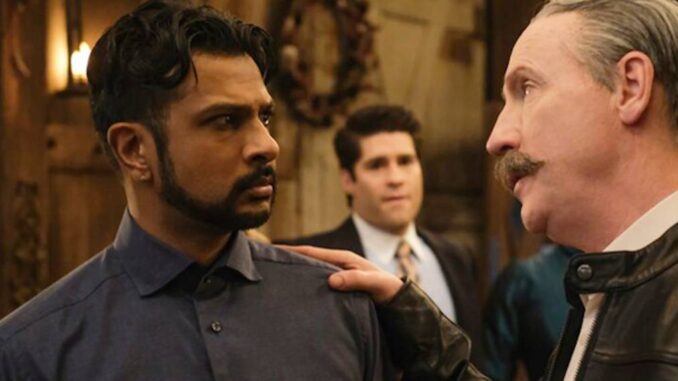
Uncharted Territory: When a Ghost's Home Becomes a Limbo
The charming, if chaotic, existence of the Woodstone ghosts has always revolved around a singular, vital axis: Sam and Jay Arondekar. More specifically, Sam, their living medium, and through her, Jay, their pragmatic, grounding, and occasionally exasperated connection to the corporeal world. Their spectral lives, for all their historical grievances and lingering attachments, had settled into a predictable rhythm of haunting, bickering, and finding increasingly creative ways to manipulate their human hosts. But Season 5 shatters this fragile equilibrium with a single, devastating fall, plunging Jay into a coma and leaving the ghosts with no choice but to explore a terrifying, unprecedented "uncharted territory."
This new realm is not one of ancient curses or undiscovered spectral powers, but a profound and agonizing liminal space, born from the very vulnerability of their living anchor. With Jay comatose, a significant portion of the ghosts' world collapses. Their voice to the living is muted, their practical impact on the house severely curtailed, and their very purpose questioned. The familiar patterns of their afterlives — whether it was Isaac’s political machinations, Flower’s existential wanderings, or Pete’s dad jokes – suddenly feel hollow without Jay's living presence to bounce off of, to inconvenience, or, most poignantly, to protect. This immediate sense of powerlessness is the first, most jarring step into the unknown. They are forced to confront the chilling reality that their entire existence is tethered to the fragile thread of human life.
The most profound uncharted territory lies within the nebulous landscape of Jay's own comatose mind. Before, their interactions with the living were external – whispers in Sam's ear, subtle chills, moving objects. Now, their efforts must shift inward, an attempt to penetrate a consciousness that is neither fully present nor completely absent. Can a ghost, a being of pure essence, influence the dreams of a living man? Can they conjure specific memories, not just for their own amusement, but as a lifeline to pull him back from the brink? This is a desperate, spiritual exploration, demanding a deeper understanding of the human psyche than their previous ghostly escapades ever required. They become accidental psychologists, attempting to map the inner workings of a mind on the precipice, searching for the right spectral key to unlock the door back to wakefulness. They are attempting to walk a tightrope between the living and the dead, a feat none of them, in their centuries of haunting, could ever have imagined necessary.
Beyond the internal, Jay's predicament also forces the ghosts to explore new frontiers in the very mechanics of their haunting. While he cannot hear them, the shocking revelation that he can see them adds another layer of desperate complexity. This transforms their interactions into frantic, spectral charades, a series of silent, visual pleas and urgent pantomimes. Pete, perhaps, might try to project the image of his favorite family vacation, hoping to stir a comforting memory. Thor might attempt a primal, visual expression of warning or reassurance. These are not just new methods of communication; they are a forced evolution of their very being, pushing the boundaries of what a ghost is capable of. They are compelled to hone their ability to project, to manifest with greater clarity, to make their presence undeniable in a purely visual sense – an artistic, almost theatrical, development born of sheer necessity.
Ultimately, Jay's predicament is not just a physical crisis for him, but an existential crucible for the ghosts. It forces them to explore the uncharted territories of their own bonds and their collective purpose. Separated from their direct conduit to the living, they must rely on each other in new and profound ways. Their individual quirks and rivalries are momentarily overshadowed by a shared, urgent goal. They become, more than ever before, a true family united by a common grief and a desperate hope. This crisis pushes them to re-evaluate their afterlives: Are they merely relics of the past, or do they have a vital, active role to play in the present? The answer, unequivocally, becomes the latter.
In Season 5, the Woodstone ghosts are no longer simply haunting a house; they are haunting a coma. This is an exploration born not of curiosity, but of an absolute, terrifying necessity. It forces them to delve into the mysteries of the human mind, to innovate their spectral abilities, and most importantly, to confront the deepest implications of their own eternal existence. Jay's plight is a catalyst, propelling them into an uncharted territory where the very lines between life, death, and the fragile bonds that connect them are blurred, tested, and ultimately, redefined.
